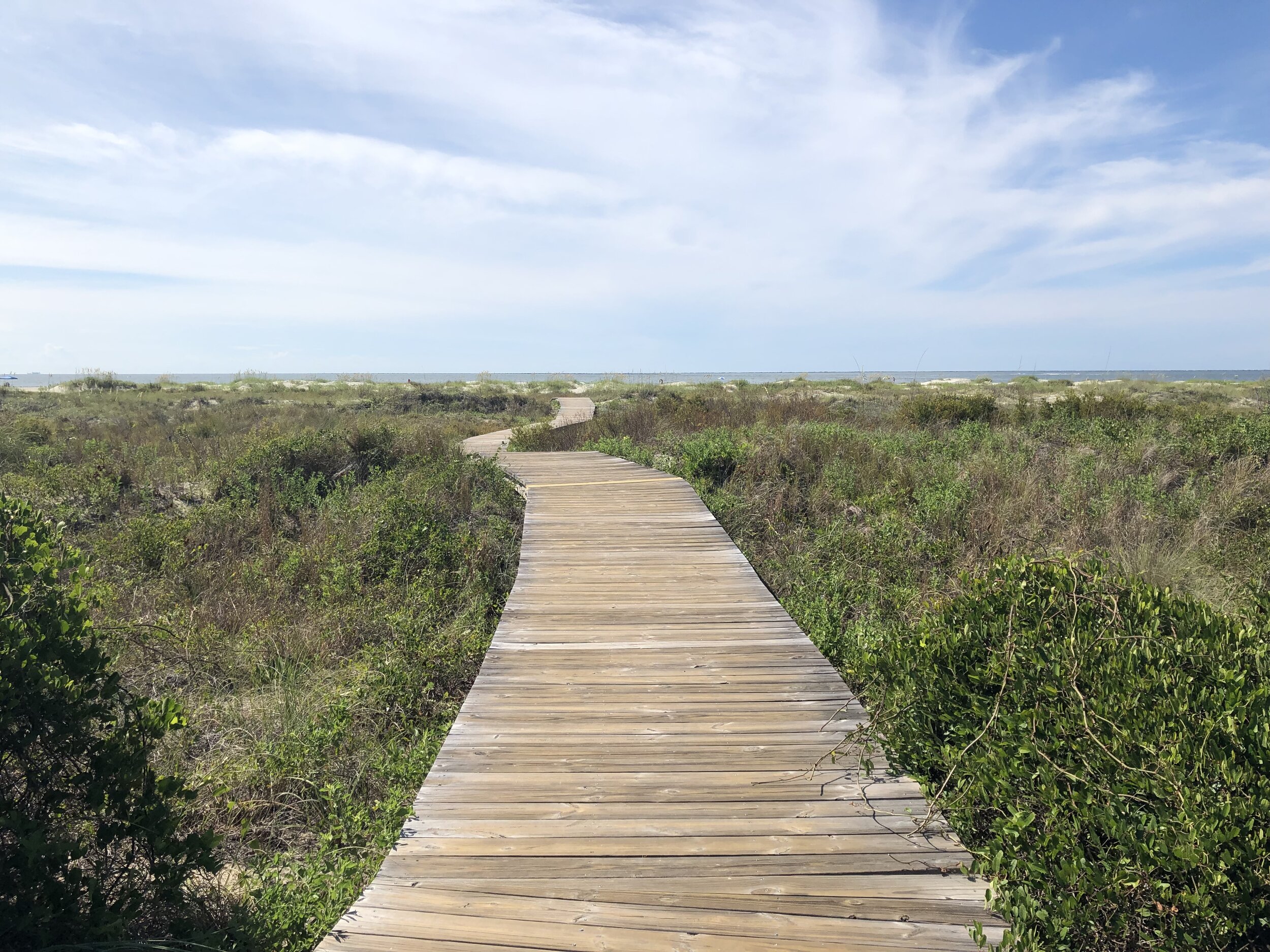What good is "covering the material"?
Sullivan’s Island, South Carolina was the point of entry for about 40% of all enslaved people arriving in North America. An estimated 50% of all African-Americans can trace their ancestry back to someone who arrived here on a slave ship. #thingsIdidnotlearninschool
It seemed straightforward: A grim chapter about the slave trade written at about a fifth grade reading level, followed by a handful of questions meant to assess learning and help the student make connections.
One of the questions could take a career or a lifetime to answer thoroughly: “What was the Middle Passage? What was it like?”
The answer I got was, “The Middle Passage was an ocean passage that had a rough and choppy ocean.”
I tried again, as vaguely as my student: “I don't think this is a complete answer. Please try again.”
He came back with: “The Middle Passage was a passage that sailor had to go through that was rough and choppy to get to the West Indies.”
After a prompt to go back over the text, the response was, “The Middle Passage was the sea journey used by slave ships from West Africa to the West Indies.”
Next, I prompted him to answer the second part of the question. What was it like?
The answer came back: “The middle passage was a rough and choppy passageway and was a dangerous journey.”
A teacher has a choice. She can simply mark an answer as wrong or incomplete — two points out of five, say — and move on. She doesn’t have to engage in all of this back-and-forth. She can just roll her eyes and assume that the student didn’t do the reading. The student has done just enough not to fail — maybe they get a C or its equivalent on the assignment — and the teacher has done her job and covered the material.
What’s the point, though? No one has dug deep enough to learn anything yet. Moving on to “cover” more material won’t fix that — it avoids the problem or even compounds it. Teacher and student collaborate (collude) to create the illusion of progress.
I didn’t want to go that route. This was too important. So I thought and reflected. What was missing? Why didn’t he see what I was looking for? I’m sure he wasn’t enjoying the feedback cycle any more than I was. Surely, if he wanted it to end, he would have done his best work by now.
Then, I changed my question: “What was the Middle Passage like for the enslaved people?”
It hadn’t occurred to him to write about things from their perspective. The paragraphs about darkness, chains, and disease had been, apparently, invisible in this context. I realized that my student had been thinking of the Middle Passage in terms of the ocean itself, something like Interstate 95 or the Panama Canal, or perhaps the Strait of Magellan or the Bosporus.
I had learned something new about how my student sees the world. I now had the spark of new activities and lesson plans that would help him to actually engage with this “material” and learn something meaningful about the terrible reality of the slave trade.
To truly understand something, we need repetition. We need coaching and guidance to go deeper and begin to see what we didn’t see before. We need mentors who won’t just give up on us and who, instead, will help us to follow through and stick with it until things click.
The traditional grading system doesn’t allow for the repetition and depth necessary for true understanding, and many of us perpetuate that cycle beyond school. We might find ourselves reading chapter after chapter to collect information without grasping its deeper meaning. We might operate without seeking feedback from others (or implementing the feedback we’ve been given). We need to hold ourselves and each other higher standard that goes beyond ticking the boxes and going through the motions.
There’s no point in covering material if we’re not extracting any insight from it. However, we can use it as a foundation for further discussion, exploration, and discovery. We’ll learn more about the world and understand more about ourselves and how we learn. Ideally, the questions and answers, whether they are asked of us or we ask them of ourselves or others, are the beginning of a conversation, not the end.
